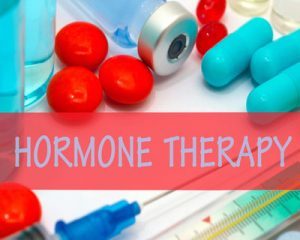- Home
- Editorial
- News
- Practice Guidelines
- Anesthesiology Guidelines
- Cancer Guidelines
- Cardiac Sciences Guidelines
- Critical Care Guidelines
- Dentistry Guidelines
- Dermatology Guidelines
- Diabetes and Endo Guidelines
- Diagnostics Guidelines
- ENT Guidelines
- Featured Practice Guidelines
- Gastroenterology Guidelines
- Geriatrics Guidelines
- Medicine Guidelines
- Nephrology Guidelines
- Neurosciences Guidelines
- Obs and Gynae Guidelines
- Ophthalmology Guidelines
- Orthopaedics Guidelines
- Paediatrics Guidelines
- Psychiatry Guidelines
- Pulmonology Guidelines
- Radiology Guidelines
- Surgery Guidelines
- Urology Guidelines
Can Hormone Therapy Prevent the Onset of Depressive Symptoms in Some Women Around Menopause?

Bottom Line: A year of hormone therapy was more effective than placebo at preventing the onset of depressive symptoms among women without depression in the menopause transition and early postmenopause.
Why The Research Is Interesting: Risk of depression increases among women in the menopause transition and early postmenopausal period. Some studies suggest hormone therapy can help to manage existing depression but it is unclear if it can prevent the onset of depressive symptoms. Research suggests hormone therapy to treat menopausal symptoms can be safe for perimenopausal and early menopausal women when it’s given at the lowest dose for the shortest amount of time.
Who and When: 172 women without depression between the ages of 45 and 60 who were in perimenopause (the transition to menopause) or early postmenopause from 2010 to 2016
What (Study Interventions): Skin patches with either estradiol (a form of the hormone estrogen) or placebo for 12 months; oral progesterone given every three months to women with the estrogen hormone patch or identical placebo pills given to women using the placebo patch.
How (Study Design): This is a randomized clinical trial (RCT), which allows for the strongest inferences to be made about the true effect of an intervention. However, not all RCT results can be replicated in real-world settings because patient characteristics or other variables may differ from those that were studied in the RCT.
Authors: Susan S. Girdler, Ph.D., and David R. Rubinow, M.D., of the University of North Carolina at Chapel Hill, and coauthors
Results: Fewer women using the estrogen patch plus taking progesterone developed depressive symptoms than those receiving placebos. Those women in the early menopause transition and those women with recent stressful life events showed the greatest mood benefit.
Study Limitations: More frequent measurements of estradiol levels before and during treatment would have allowed researchers to more directly test the notion that reducing fluctuation in estradiol levels is how hormone therapy can help with mood.
Study Conclusions: If these study findings are confirmed in future research, clinicians may consider prescribing hormone therapy to mitigate the increased risk of depressive symptoms in women in the menopause transition and early postmenopause.
For more details click on the link: http://jamanetwork.com/journals/jamapsychiatry/fullarticle/10.1001/jamapsychiatry.2017.3998

Disclaimer: This site is primarily intended for healthcare professionals. Any content/information on this website does not replace the advice of medical and/or health professionals and should not be construed as medical/diagnostic advice/endorsement or prescription. Use of this site is subject to our terms of use, privacy policy, advertisement policy. © 2020 Minerva Medical Treatment Pvt Ltd